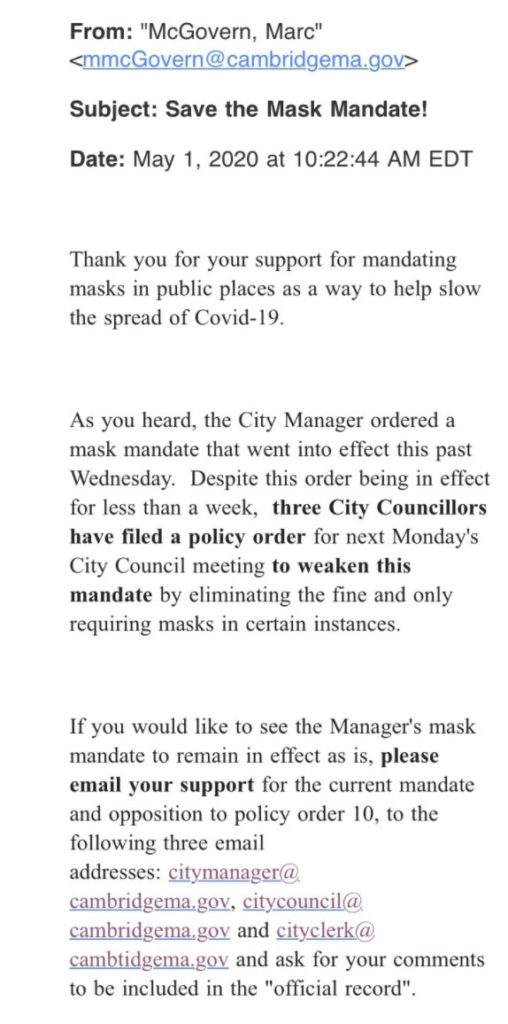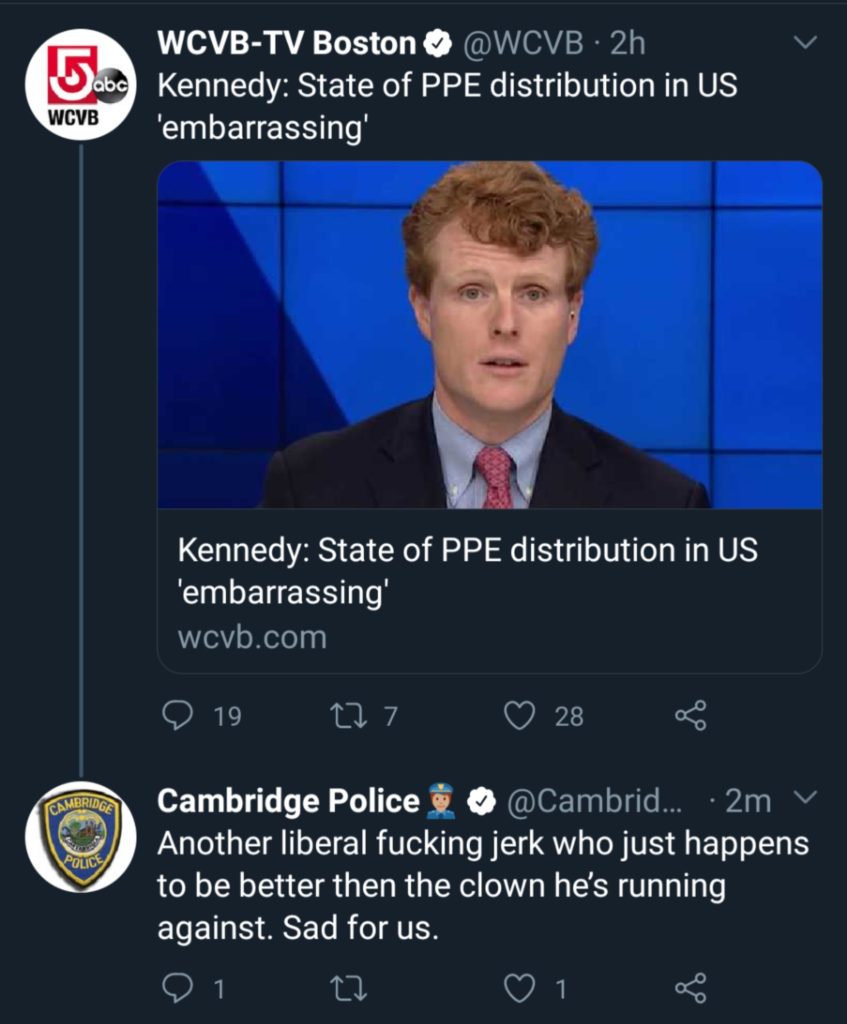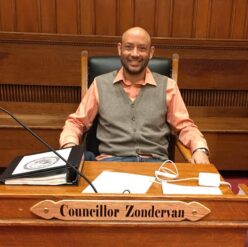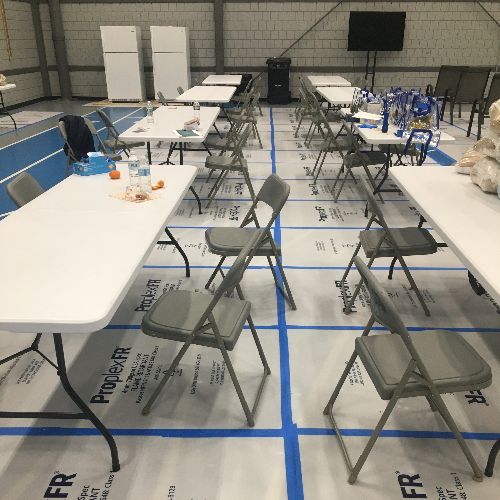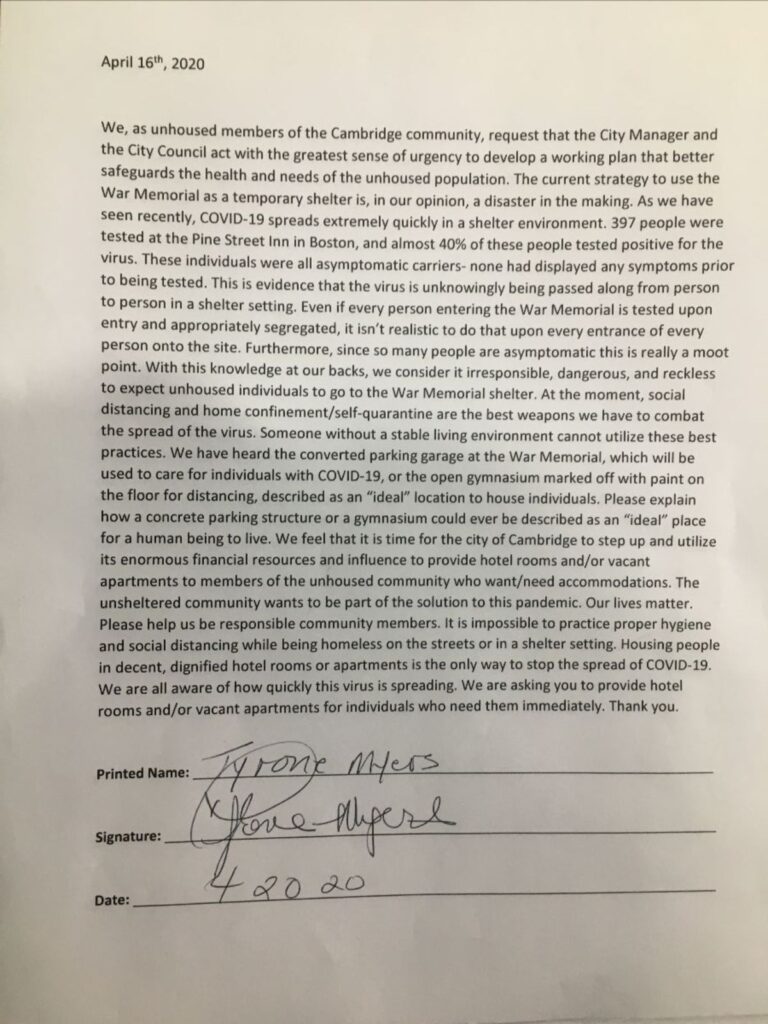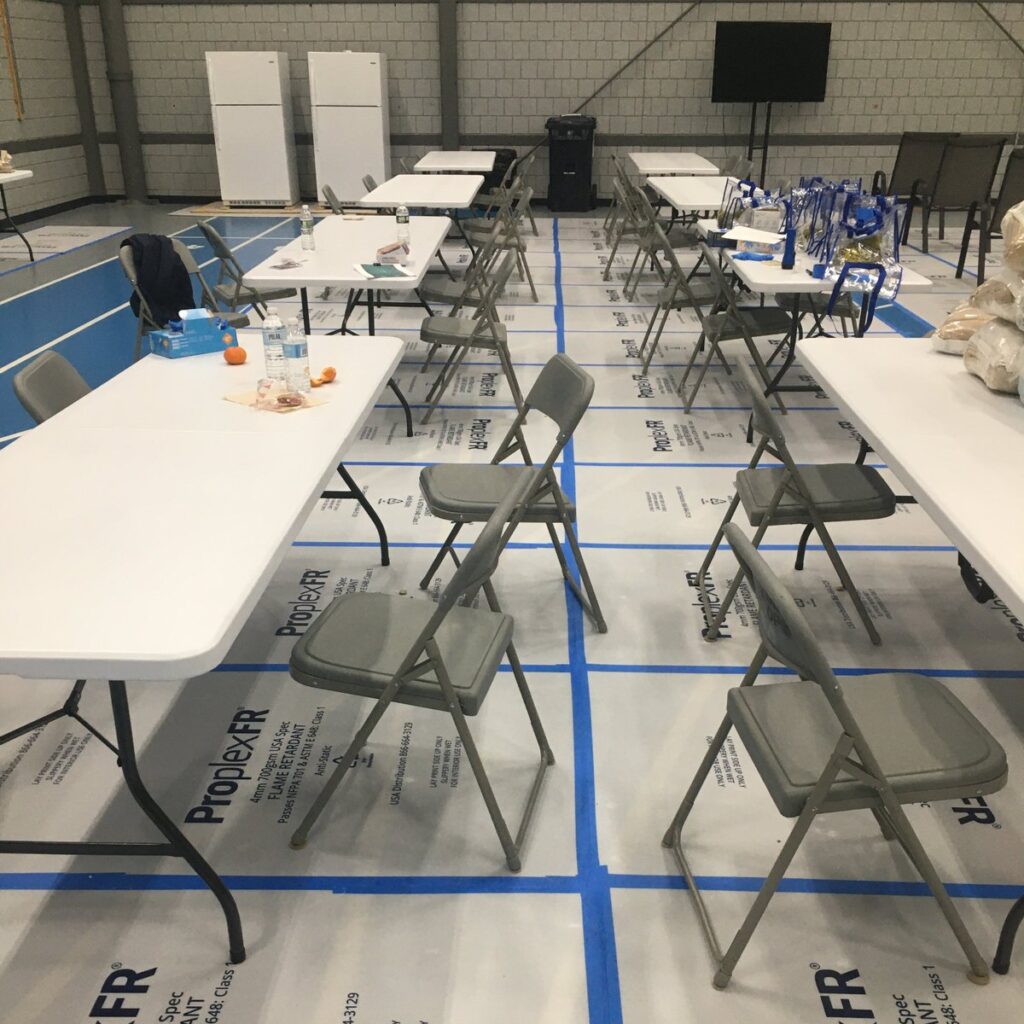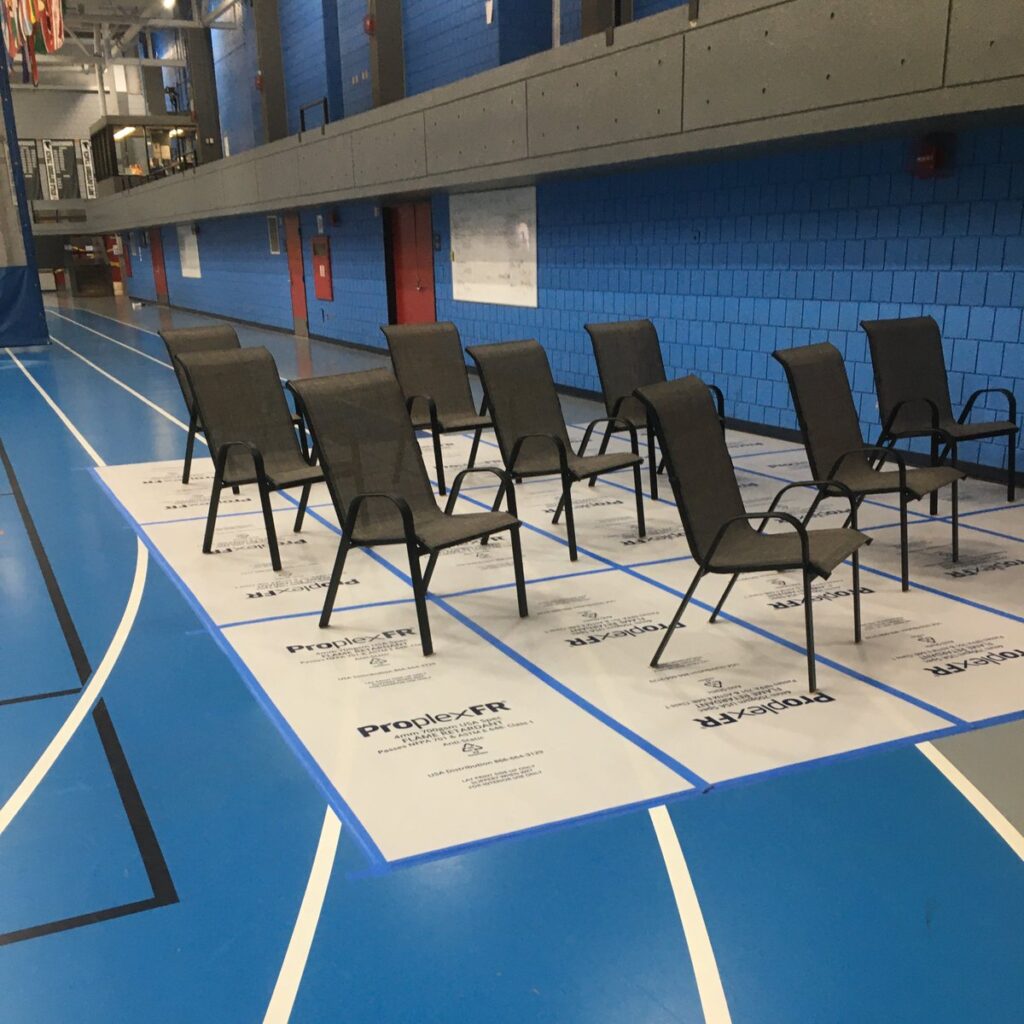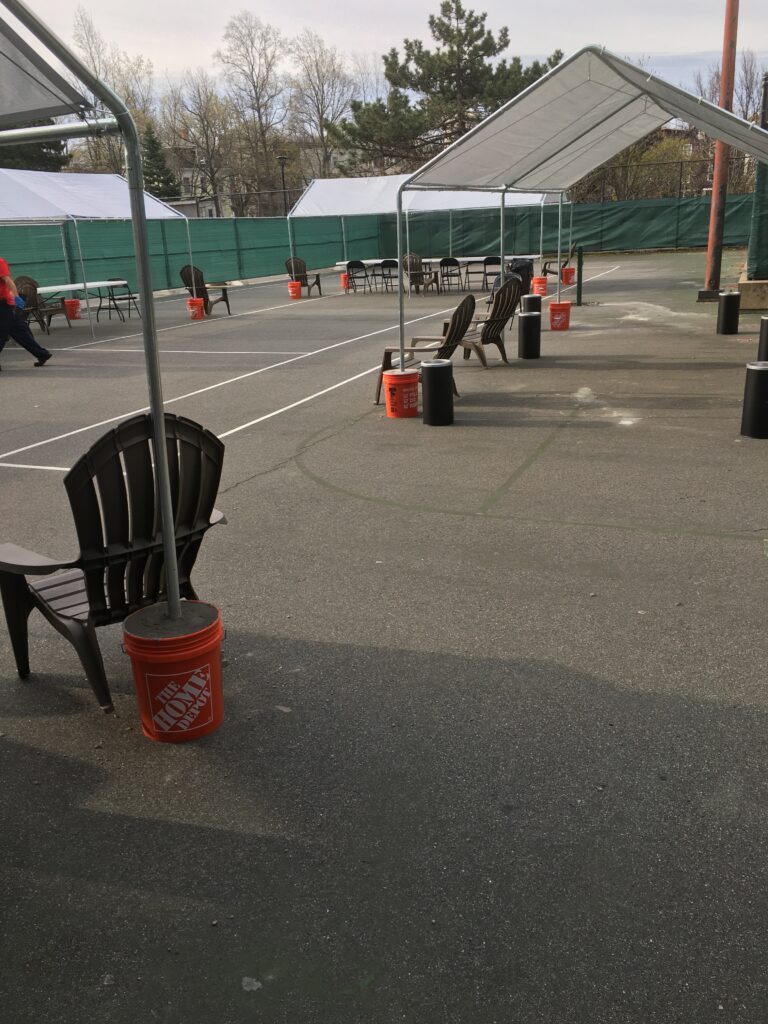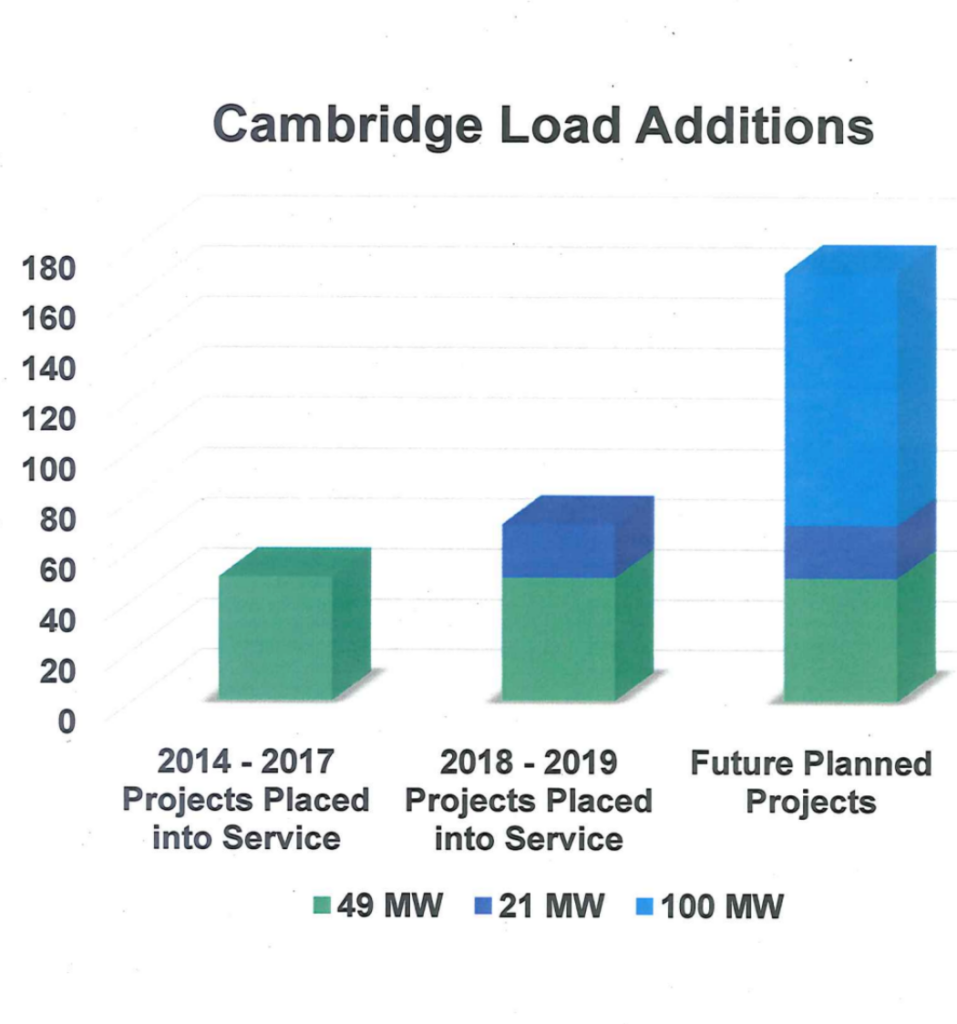A picture of the cafeteria at the city’s War Memorial emergency shelter, posted with permission from someone living at the shelter. You can see that food has been left out and the chairs definitely aren’t six feet apart. Folks staying inside the shelter have reported to my office that they are completely uncomfortable with these arrangements. You can read a more detailed update on this situation, or scroll down to Charter Right #1 to learn more about the upcoming vote to improve conditions. Please consider taking a moment to email the council about this in solidarity with the unhoused community.
Based on the daily case count, it does appear that Cambridge has entered the peak, the period during which we expect to see the most simultaneous active cases of COVID-19. Following this, we will hopefully see a mostly declining caseload. Based on the current data, Cambridge may have hit peak caseload, or is about to, but that is all subject to change because much of the data is still incomplete and gets filled in over time. So we won’t know for sure until after the peak has happened.
Unfortunately, that also means we will see an increase in fatalities, which lag behind total cases for obvious reasons. Last weekend’s Boston Globe obituary section ran 15 pages long, and soon most of us will know someone who died of COVID-19. It is going to be a very difficult next few weeks, and what lies beyond is anyone’s guess at this point.
You can still give public comment virtually at council meetings by signing up here. Once you sign up, you will receive instructions on how to enter the Zoom meeting on Monday night. For assistance with this, please contact my office directly: [email protected], 617-901-2006 (leave a message and Dan or I will get back to you).
City Manager’s Agenda
CMA #1: Funding for family support and parent education programs
Families are going to need support now more than ever. It is good to see this grant funding, and I wonder if we can do even more.
CMA #2: Funding for Low Income Heating Assistance Program (LIHEAP)
This is $309,676 in funding for LIHEAP, which helps low-income families in Cambridge and Somerville pay their heating bills during the winter.
CMA #3: Funding for Y2Y Youth Shelter
This appropriation of $114,359 will allow the Y2Y Youth Shelter in Harvard Square to continue running through May 31. I am glad to see this funding because there is significant concern around the potential placement of these youth clients at the War Memorial emergency shelter.
CMA #4, CMA #5, CMA #6: Funding for snowstorm-related expenses
These appropriations will fund snowstorm-related expenses incurred this past winter including snow removal contracts, new equipment, and related street repairs. There obviously wasn’t much snow this winter, a mere 22 inches over 11 events. Given this, I don’t really understand why we are being asked to spend 1.1 million over what was budgeted. Do we budget for winters with absolutely zero snow? Why are we comfortable using Free Cash as a slush fund for snow removal, but not for housing the homeless during an emergency?
CMA #7: University funding for the War Memorial emergency shelter
Harvard and MIT each donated $250,000 to fund the construction and operation of the War Memorial emergency shelter, and this item makes it official. Frankly, given how large the endowments of these two universities are, I find these donations insulting. Harvard and MIT refused to shelter people on their campuses and only made this contribution when criticism began to build. Neighboring institutions are doing more for their communities with fewer resources. I created a petition calling on Harvard and MIT to step it up: you can sign here if you haven’t already. Over three hundred people have signed, including many Harvard and MIT alums, students and faculty! The War Memorial emergency shelter is fundamentally unsafe, and you can read more about my thoughts on that below, in Calendar #1.
CMA #8: City Manager update on COVID-19
This is yet another placeholder, and we will undoubtedly receive an actual update in person on Monday night. But I don’t understand why we cannot get written updates on the agenda ahead of time? I realize this is a rapidly changing situation, but that doesn’t mean we can’t have written reports on Thursday that are elaborated on in person on Monday.
Calendar
Charter Right #1: Repurposing the War Memorial emergency shelter
I exercised my charter right on this policy order at last week’s meeting for the purpose of giving us more time to truly hear from the unhoused community about their needs. Over the last two weeks, my office has been in direct dialogue with several unhoused individuals, many of whom are living at the War Memorial emergency shelter and are reporting unsafe conditions. The council also received a citizen’s petition from the unhoused community, with over 100 signatures, asking for safer arrangements. This week I met (via telephone conference) with members of the community, the City Manager, and Councillor McGovern, to have a more formal discussion about how we can improve safety and comfort for the unhoused. The unhoused people on the call asked repeatedly to be housed in hotels or dormitories to safely practice social distancing, and this ask was strongly supported by their advocates in MAAP.
I will propose amendments to the policy order that bring it up to date, and hopefully, my colleagues will be more supportive of moving in this direction after hearing from the unhoused community directly about their needs. If Cambridge wants to be known as the best when it comes to human services, we need to do everything possible to protect our most vulnerable. So far we have not done that yet, great intentions notwithstanding.
Communications
Communication #5: Green Cambridge comments on proposed Alewife upzoning
This is an important letter from Green Cambridge about the environmental concerns raised by a proposed development from Cabot, Cabot, & Forbes. Separately, it is unclear how the new economic conditions will impact this and other proposed developments in the city. Chances are that as the recession deepens, projects will be delayed or even canceled. It’s a whole new world and we’re going to have to get creative about making sure we meet our affordable housing goals even as the recession eats into our revenues and private sector contributions. For the record, I have never taken campaign contributions from any real estate developer, including executives at Cabot, Cabot, & Forbes.
Communication #6: Petition from the unhoused community
This agenda item is actually a petition from the unhoused community in Cambridge, with over 100 individually signed letters (presumably collected that way to reduce the risk of COVID-19 transmission). The petition calls for safer accommodations from the city, specifically mentioning hotels and dorms. Here is an example:
Resolutions
Resolution #8: on the death of Donald Reed Herring, brother of Senator Warren
Condolences to our Senator, who lost her brother this week, as well as to everyone who is experiencing loss in this difficult time.
Policy Orders
PO #1: Food delivery app service fees
This policy order asks the City Manager to look at restricting service fees charged by food delivery apps like Uber Eats and Grubhub. Right now the fee structure is outrageous and it is really hindering the ability of our small businesses to stay above water during this crisis. It strikes me as fundamentally unfair that delivery services charge based on a portion of the meal cost, cutting directly into the restaurant’s profits. Why not charge a reasonable delivery fee instead? This is yet another unfortunate example of how the gig economy infected and weakened our economy, long before the appearance of COVID-19.
PO #2: Mandatory face masks
This policy order asks the City Manager to make wearing a mask in public mandatory. I support this, but we need to be careful to avoid unintended consequences by acknowledging the potential for racial bias in enforcement. We also need to recognize that not everybody has the resources to create a cloth mask, so we need to make sure there is a proactive effort to supply people with masks, rather than just slapping them with a fine that they may not be able to afford. If we can’t provide everyone who doesn’t have one with an appropriate mask, it wouldn’t be right to require everyone to wear one.
With that said, making this mandatory clearly communicates to people what is expected of them in order to protect the vulnerable. Many people are dying from this disease; the least we can do is prevent spreading it by staying home and wearing a mask when we have to go out.
PO #3: City workforce safety
This policy order asks the City Manager to establish specific steps to ensure the safety of the workforce upon the reopening of City offices and to provide special guidance for those employees who may be especially susceptible to COVID-19. It is important to protect our staff as they begin to return to physical offices over the next few months. Hopefully, this will lead to the city allowing a more flexible work schedule so that more people can work from home, de-densifying the offices, and making it easier to practice social distancing for those who come in that day. Even once we open back up, special considerations will need to be given for those who are particularly vulnerable.
PO #4: Mental Health Awareness Month
The COVID-19 pandemic has been a challenging time for everybody, but especially for those who struggle with their mental health. Some have found solace in connecting with friends and family over the internet, but that has only made things more difficult for others. We need to find better ways to support each other and protect our mental health. This policy order, which recognizes May 2020 as “Mental Health Awareness Month” in Cambridge, is a good initial step in that direction.
PO #5: Videoconferencing technology for Council meetings
I totally agree with this order from Councillor Sobrinho-Wheeler which asks the City Manager to look into a way of doing committee hearings over Zoom that would comply with the open meeting law. Monday night may actually be the first council meeting with a majority of councillors on Zoom- I’ve been using it for a few weeks but it hasn’t been fully integrated into the city’s A/V broadcasting system until now. We did a test run on Friday and it seemed to work ok, so hopefully, Monday night will be a successful first Zoom-based Cambridge city council meeting. With those kinks worked out, we should be able to start having committee meetings again via Zoom, of course initially dealing with COVID-19 related matters only, but eventually getting back to at least some of the other business that still awaits.
Communications & Reports from Other City Officers
COF #1: School Committee budget update
First, I really appreciate Mayor Siddiqui’s communications keeping us abreast of the school committee discussions around the budget. These regular updates have been quite useful and are an important part of open and transparent communication between the City Council and School Committee around our collaboration on the school budget, which ultimately requires approval from both bodies.
Second, I’m heartened by the depth and breadth of discussion taking place on the School Committee around racial equity and closing the achievement gap. It seems to me that this is the most airtime this topic has received in decades. Talking about it does not equate with solving the problem, but we certainly cannot address the problem without talking about it. I look forward to an ongoing robust discussion and ultimately to a budget that begins to make real, meaningful change in the direction of equity. And if it doesn’t, I will once again not vote for it.



